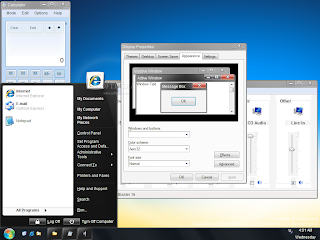An extra one and a half million homes will benefit from super-fast broadband by 2012, BT has said.

Originally the telecoms firm said that it could only deploy so-called Fibre-to-the-Premises (FTTP) to a million homes because of its cost.
But it now believes 2.5 million homes can benefit because it will be cheaper to provide than it had first thought.
Fibre will be available to over 10 million UK homes
A further 9 million homes will receive the slower Fibre to the Cabinet (FTTC) technology by 2012.
Previously BT had said that it could only lay FTTP to new-build sites - with the Ebbsfleet development in Kent is its flagship site - but now it has found a way to make it more widely available.
It will use existing ducts and overhead cables to bring fibre to brownfield sites as well.
Potential sites will be identified by a variety of factors, including geography of the region and the topology of the network.
Homes eligible for the FTTP technology will receive speeds of up to 100Mbps (megabits per second). This compares to a top speed of 40Mbps for FTTC technology.
Listening
Openreach, the BT spin-off responsible for the fibre rollout, recently announced Bradwell Abbey in Milton Keynes and Highams Park, London as the first "brownfield" trial sites for FTTP.
Around 20,000 homes and businesses will receive speeds of up to 100Mbps by March 2010.
Steve Robertson, chief executive of Openreach, said BT was responding to pent-up demand for the faster fibre.
"Service providers have asked us for more FTTP and so we have listened to them," he said.
"The UK already leads the world when it comes to broadband availability and today's announcement will help the UK climb the speed league tables as well," he said.
A recent study of the global state of broadband, conducted by Oxford University's Said Business School, put the UK 25th out of 66 countries in terms of the quality of its network.
It was not in the countries judged by the survey to be "ready for tomorrow".
BT faces stiff competition from other operators, notably Virgin Media, which has upped the speed of its cable network to 50Mbps and has been trialling speeds of up to 200Mbps.
The government has pledged to make its broadband tax law before the next election. The tax, which will collect £6 a year from all householders with a fixed line telephone, will provide a fund to subsidise fibre rollout to areas not regarded as economic by firms such as BT and Virgin.
It also pledged in its Digital Britain report to provide a minimum of 2Mbps broadband to every UK home by 2012.
Andrew Ferguson, editor of broadband website ThinkBroadband welcomed BT's decision to extend its fibre footprint but thinks it could make government targets look too conservative.
"The broadband world changes so quickly that things happening at civil service pace just simply cannot keep up. Or put another way, how will those with a 2Meg connection feel when 2 million homes have access to 100Meg speeds?" he said.
taken from :
BBC news








































